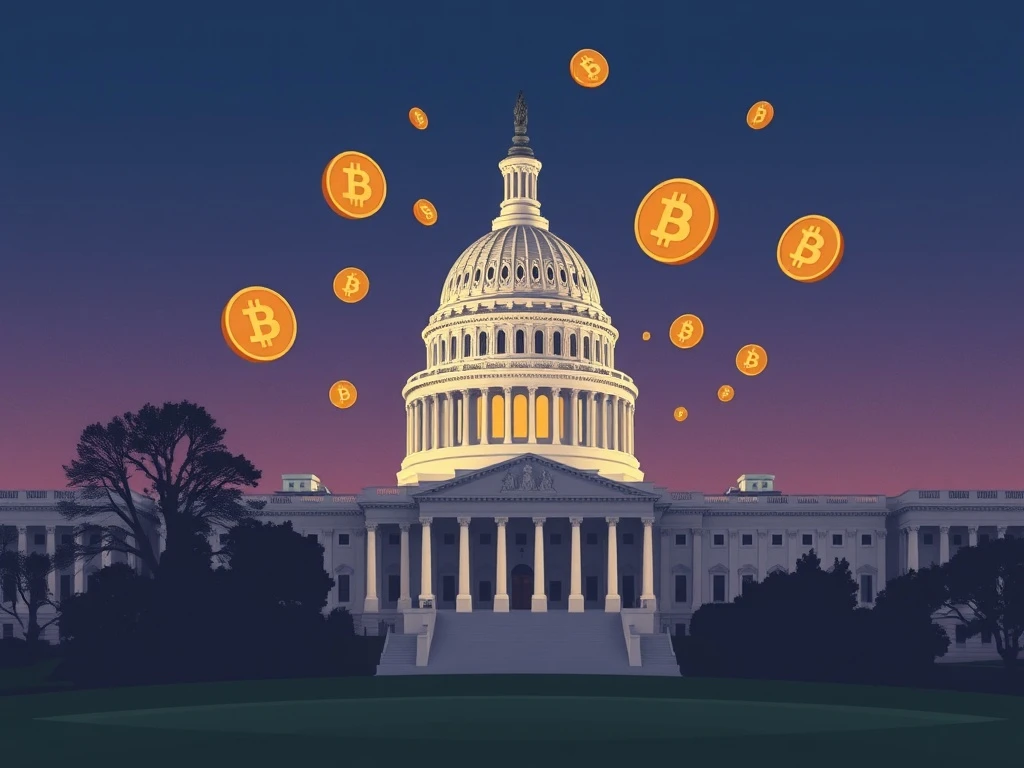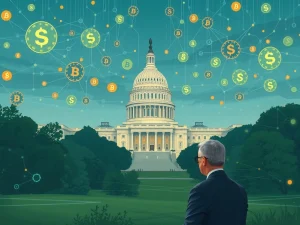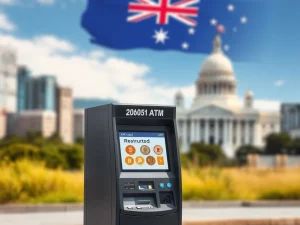US Republicans Announce Crucial ‘Crypto Week’ to Advance Key Bills

Big news from Capitol Hill! US Republicans are setting aside a dedicated period in July to tackle significant crypto legislation. They’ve dubbed it ‘Crypto Week,’ signaling a focused effort to push forward key bills impacting the digital asset space.
US Republicans Plan ‘Crypto Week’ in July
According to House leaders, including House Finance Committee Chair French Hill, House Agriculture Committee Chair Glenn Thompson, and Speaker Mike Johnson, the week of July 14 to 18 is slated for reviewing three critical crypto bills. This move aligns with President Trump’s stated agenda for digital assets.
Speaker Johnson highlighted the importance of this period, stating, “House Republicans are taking decisive steps to deliver the full scope of President Trump’s digital assets and cryptocurrency agenda.” He specifically mentioned three pieces of legislation up for consideration:
- A bill on stablecoins (GENIUS Act)
- A crypto market structure bill (CLARITY Act)
- A bill on central bank digital currencies (Anti-CBDC Surveillance State Act)
This push comes after President Trump expressed a desire to see stablecoin legislation passed swiftly before the August recess.
Stablecoin Regulation Takes Center Stage
One of the primary focuses of ‘Crypto Week’ is stablecoin regulation. The House appears to be prioritizing the Senate-led GENIUS Act over its own STABLE Act, which passed the House Finance Committee in May but hasn’t seen a full floor vote. The GENIUS Act passed the Senate with bipartisan support last month.
If the House passes the GENIUS Act without changes, it heads directly to the President’s desk. However, amendments are possible, particularly regarding issuer eligibility, state vs. federal oversight, and compliance. If amendments are made, the bill returns to the Senate for approval.
Differences between the GENIUS and STABLE Acts, particularly concerning oversight authority (federal vs. state), could lead to a joint committee to reconcile the bills before a final vote.
Navigating Crypto Market Structure Legislation
Another key bill on the agenda is the CLARITY Act, aimed at defining the regulatory landscape for crypto market structure. This bill has advanced through House committees (Financial Services and Agriculture) and is ready for a full House vote.
The CLARITY Act proposes assigning jurisdiction over crypto assets between the Securities and Exchange Commission (SEC) and the Commodity FInancing Trading Commission (CFTC). It would require most crypto exchanges to register with the CFTC and establishes rules for disclosures, customer asset segregation, and recordkeeping.
A White House crypto policy adviser, Robert “Bo” Hines, reportedly expects the CLARITY Act to pass the House quickly.
The Push for a CBDC Ban
The third bill under consideration is the Anti-CBDC Surveillance State Act. This bill aims to prevent the Federal Reserve from developing, testing, or issuing a central bank digital currency (CBDC) and from offering direct financial products to individuals.
An identical bill exists in the Senate, suggesting a coordinated effort to expedite the legislative process. The House version of this bill, reintroduced by House Majority Whip Tom Emmer, passed the House Finance Committee in April, though the Senate version is still in committee.
Democrats have largely voiced opposition to these Republican-led crypto bills, citing concerns about potential conflicts of interest related to President Trump and his family’s growing involvement in the crypto sector.
What This Means for Crypto Legislation
The declaration of ‘Crypto Week’ by US Republicans signals a clear intent to advance specific legislative priorities in the digital asset space. Focusing on stablecoin regulation, crypto market structure, and a CBDC ban, these bills aim to shape the future of crypto in the United States. While challenges remain, particularly in gaining bipartisan support and reconciling differences between House and Senate versions, this dedicated week indicates a significant step forward in the legislative process for these key crypto bills.










